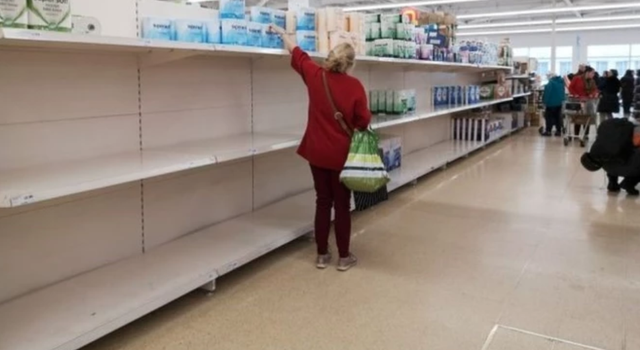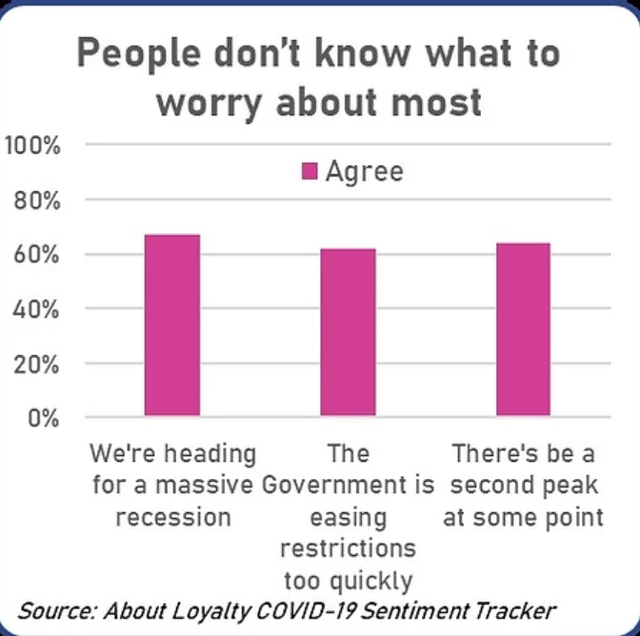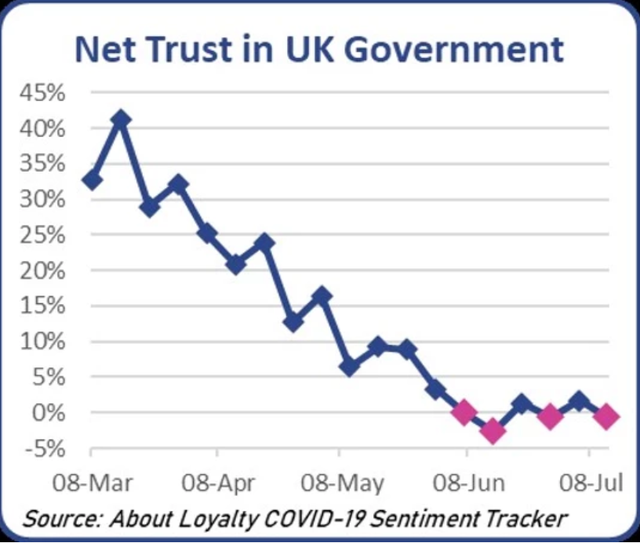Charities… the new supermarkets?
Can charities take on the role of supermarkets in the time of coronavirus? This is the question asked by our friends at About Loyalty.
- Written by
- Richard Spencer
- Added
- August 13, 2020
It was four months ago today that the Government put us all into lockdown; 1/3 of a year. For a moment, I’d like you to cast your mind back to that time. It feels a long time ago, doesn’t it?
It was a time of massive fear, as we were all scared about our health and the ability of the NHS to cope if there were a big outbreak of the virus. It was a time of concern for loved ones, especially elderly relatives if we couldn’t be there with them.

It was also a time of panic buying and unfairness as every day we heard stories of NHS workers and the elderly not being able to get to a supermarket to buy toilet roll and paracetamol.
The problem was urgent, but simple. And the solutions, clear.
Up stepped the government. A week after the Cheltenham Festival and Liverpool hosted Atletico Madrid in the Champions League, they provided the leadership and clarity that we were all looking for by announcing the lockdown.
Up stepped communities. We set up WhatsApp groups so we could help our neighbours and we were grateful to our elderly parents’ neighbours for doing the same when we couldn’t be there. We protected the NHS with our sacrifices, and we clapped the NHS and other key workers. And we cheered on Captain Tom Moore and gave to the NHS and other charities.
And up stepped supermarkets. Yes, SUPERMARKETS! While the government announced lockdown for all, supermarkets were seen as carrying the flag for the vulnerable – they raised the profile of the problem and gave us answers in the form of NHS-only shopping hours and priority shopping for the elderly.
Supermarkets were the unlikely heroes of COVID-19 – providing leadership and a solution to the injustice that we all saw, but felt powerless to address.
Now fast forward and think about how different things are today.

What was a simple health problem has become a complex, multi-faceted one with no clear answers. We might be a little less scared for our own health, but we are still worried that the virus will come back. Mostly people are conflicted and confused as they want the economy to open up, but they don’t want to risk a second spike in cases. Most people want to go out and live normally, but they are scared to do so.
People (including your donors) want clarity, they want someone to tell them how we’re going to get out of this mess and they want a vision for how the things they care about most will be in the future and what they can do. They want leadership.
We’ve seen this in our public COVID-19 sentiment tracker, and Mark Phillips has reported it in the qualitative research that Bluefrog Fundraising has undertaken.
But where is this leadership going to come from?
This time, it’s not going to come from the supermarkets. While trust in them remains high, they aren’t the ones who will provide this vision.

It’s not going to come from the Government – where net approval has fallen from a high of +41 per cent at the end of March to little more than zero per cent today.
And it’s not going to come from the communities – who are the very people looking for the leadership.
There is a vacuum of leadership that we must fill. In the same way that supermarkets stepped in a few months ago, it’s time for charities to step in today.
We must be the new supermarkets! We must be a loud and relevant voice in the discussions and decisions around how our society comes back – painting the picture of a society that is better and stronger than ever. We must stand up and provide this leadership.
Yes, it’s our duty to do this. We owe it to our beneficiaries to make sure we never return to the inequalities and injustices that have been so horribly exposed by COVID-19.
But it’s also a massive opportunity for us and for our sector. Our donors (those amazing people who have stood by us over the last four months, kept their regular gifts going and given to our emergency appeal simply because they never stopped caring) want us to.
So, where should you start? There are three things to focus on:
Give donors a vision to believe in: Don’t think too far ahead – we’re talking weeks and months, not years. Show them what you are doing today, and how you will help your beneficiaries through this time of confusion and fear for so many. What’s your current fundraising proposition?
Make donors feel needed and valued: Ask! Don’t be afraid to ask, after all donors, just like all of us, will be delighted to know that they can play a role in making it happen.
Ensure donors know that they are part of the solution: Thank and feed back. Show them what they have achieved. Make them feel great about the difference they have made.
It might be your vision, but you have given donors the vital role in bringing it to life.
That’s leadership!

















